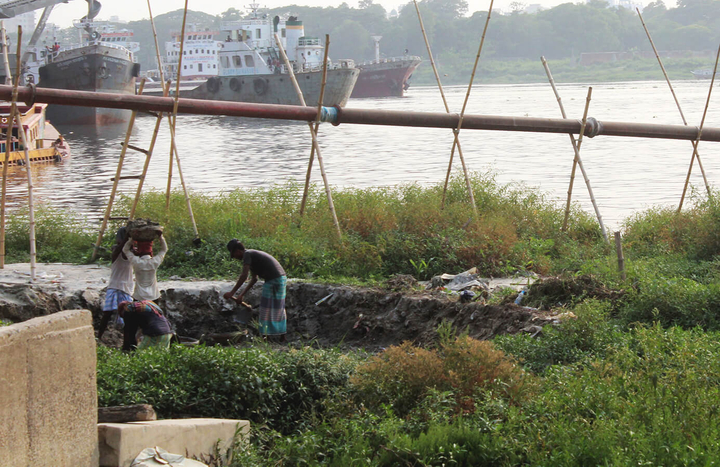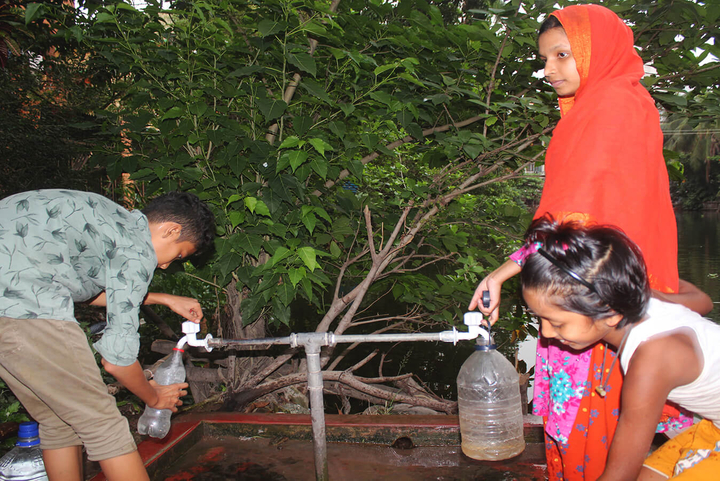Sonia Dewan Preity travelled along the Shitalakshya river, known as the lifeline of Narayanganj near Bangladesh's capital Dhaka. How to revive an ailing river?
Due to unplanned disposal of household and industrial wastes, the river water here has become unusable. And, thus, there is a crisis of pure drinking water. At the same time, residents are suffering from various respiratory diseases due to air pollution caused by brick kilns, construction work and vehicle fumes in populated areas.

Untreated wastes from industry, households, kitchen markets, hotels and restaurants are being dumped into the Shitalakshya River every day. Besides, the carcasses of various domesticated and stray animals are also thrown in, instead of being buried. As a result, the water of the river that is the heart of the city has become toxic. Water supplied by the local water and sewerage authority (WASA) contains a variety of pathogens and waterborne germs; it is not suitable for drinking even after treatment.
On the other hand, air pollution is constantly increasing due to brick kilns, construction works, road dust, and fumes from vehicles and factories. Particularly, pollution from factories located in the port area and fly ash from a dozen unplanned cement factories in the district is causing respiratory diseases in people of all ages. However, the locals claim that no easy solution to this problem has been found yet.


Left: factory along the Shitalakshya river near Dhaka, Bangladesh. Right: construction works along the Shitalakshya river near Dhaka, Bangladesh. Photos: Sonia Dewan Preity
According to the Department of Environment (DoE), a minimum of 4.5 mg/L of oxygen is required to sustain biodiversity in river water. But the water of the Shitalakshya contains 0.5 mg/L of oxygen. Thus, it is difficult for all kinds of aquatic species, including fish, to survive here.
"According to the latest calculation on June 2, 2021, the Air Quality Index in Dhaka City was 118 while the air index in Narayanganj was 108," said Abdullah Al-Mamun, deputy director of DoE in Narayanganj. "Also, in the dry season, the air quality is even worse, which confirms the position of Narayanganj after Dhaka in air pollution."

Pediatrician Dr. Mohammad Nazmul Huda said the number of bronchial and asthma patients is increasing day by day due to the high air pollution. "Every day, innumerable patients are coming to our chambers with such problems. Overall, the human body's immune system is compromised by excessive air pollution," he added.
M. Shafiqul Islam Arju, a human rights activist, said, "Bangladesh is a land of seasonal and natural beauty. But today we are facing air, water and environmental pollution. Trees are being cut down for unplanned urban settlements and industries around us. These factories, some of which occupy riverbanks, are polluting the air and water bodies without heeding the law. As a result, we are prevented from living a healthy life. If we do not get out of this situation now, our lives will be at risk."
Meanwhile, city planners recommend that in order to improve the environment of the city and save the river, concerted efforts of all relevant government agencies and the people are needed as neither side can do it alone.





